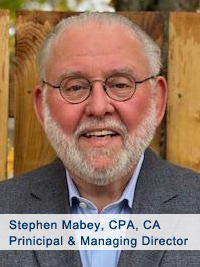Neglecting any one of the above elements seriously increases the odds of failure.
I hope none of you are tired of change yet as it is only going to get faster and more profound in 2012. Perhaps it is best expressed by Stuart Popham, a former senior partner with Clifford Chance LLP, when he is quoted as having said: “The legal profession faces the classic choice of seeing the future as a challenge or as an opportunity. But it can only accept change; it does not have the luxury nor the choice to ignore it. That change is overdue and, in my view, is going to be significant—indeed dramatic. For too long the profession has retained the hope that it can hide while change passes it by. No longer.”
- How many international mergers will include Canadian law firms;
- how many Canadian law firms who fought change will fail;
- how many practice groups will be jettisoned out of firms as they focus on what they see as “core business”;
- how large will the shortage of articling jobs grow before law schools come to the table;
- how many partners will be de-equitized;
- how many associates will take flight from large law firms;
- how far will knowledge management advance;
- how many technical lawyers will understand the need to convert information into insight;
- how many firms' management will understand the influence of information comes from its communication and not its ownership?
Lots of questions with the answer not if, but how many.
An interesting challenge that will face many firms in 2012 and subsequent years is the inundation of information and data streams (including e-mails) and the negative impact it is having on effective decision-making in law firms.

The above slide was used in a recent webinar put on for the Legal Marketing Association (LMA) and it attempts to sum up the issue—an issue that is also applicable to the manner in which many firms are delivering legal services and why few of them, if any, will achieve the status of Trusted Adviser with their clients. The book Drinking From The Fire Hose was co-authored by Christopher Frank and Paul Magnone and published by the Penguin Group and is worthy of a serious read this holiday season.
The manner in which firms decide to handle disruptive personalities in their firms will also be a major determinate in the degree of success they experience in 2012 and beyond. |
The manner in which firms decide to handle disruptive personalities in their firms will also be a major determinate in the degree of success they experience in 2012 and beyond. Eric Bell published a parody titled the 7 Habits of Highly Incompetent People. While I am not suggesting that lawyers in general and those in your respective firms specifically are incompetent, I am willing to bet that there are a number that possess at least one of the three following disruptive habits:
1. They think, say, and do negative things
Yup. They see problems in every opportunity. They think that everyone is against them. They see the problems but never the solutions. Every little bit of difficulty is exaggerated to the point of tragedy. They regard failures as catastrophes. They become discouraged easily instead of learning from their mistakes. They never seem to move forward because they're always afraid to come out of their comfort zones.
3. They talk much more than they listen
They want to be the star of the show. So they always engage in talks that would make them heroes, even to the point of lying. Oftentimes they are not aware that what they're saying is not sensible anymore. When other people advise them, they close their ears because they're too proud to admit their mistakes. In their mind, they're always correct. They reject suggestions because that will make them feel inferior.
7. They take the easy way out
If there are two roads to choose from, incompetent people would choose the wider road with less reward than the narrower road with much better rewards at the end. They don't want any suffering or hardship. They want a good life. What these people don't know is that what you reap is what you sow. Efforts and action will not go unnoticed. If only they would be willing to sacrifice a little, they would be much better off. Successful people made it through trials and error. They never give up. They are willing to do everything necessary to achieve what they aspire for in life.
A “creeping” challenge that many firms will experience in 2012 and beyond is balancing the need to be financially astute (alternative fee arrangements, cost accounting, expense reductions, etc.) and adopting an accountant-like mindset. The difference has been historically labelled several different names: “culture” or “collegiality” or “cheap.”
In closing I want to wish everyone and their families the very best of whichever holiday you are enjoying this season which include:
- Ramadan (Muslim)
- Fiesta of Our Lady of Guadalupe (Mexican)
- St. Lucia Day (Swedish)
- Hanukkah (Jewish)
- Christmas Day (Christian)
- Kwanzaa (African North American)
- Omisoka (Japanese)

